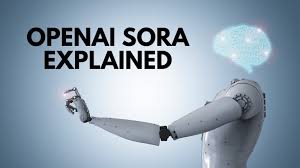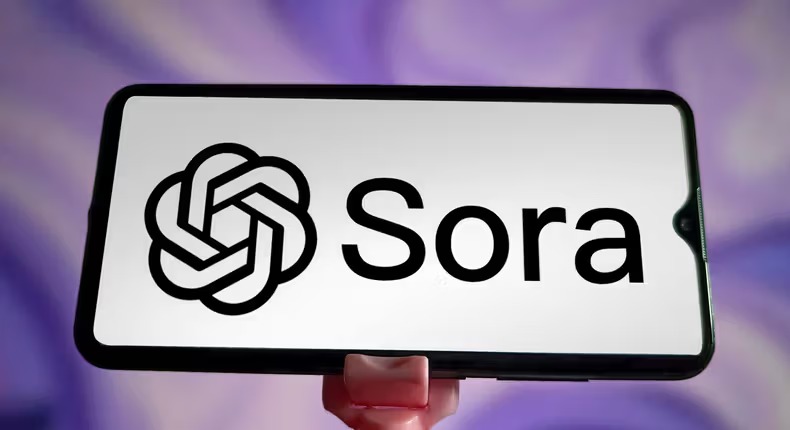Sora’s dazzling AI could democratize filmmaking for the next generation, representing a significant leap forward in how technology is reshaping creative industries. This innovative tool promises to lower the barriers to entry for aspiring filmmakers by automating complex processes, simplifying workflows, and enabling access to sophisticated production techniques that were once the domain of elite studios with substantial budgets. Yet, as groundbreaking as Sora’s AI appears to be, its potential is tempered by inherent limitations that underline the challenges of integrating artificial intelligence into creative endeavors.

At its core, Sora’s AI aims to empower creators by bridging the gap between ideas and execution. For generations, filmmaking has been perceived as an art requiring immense resources, from expensive equipment and professional-grade editing tools to the expertise of skilled technicians. Sora disrupts this model by using AI to replicate many of the technical and artistic decisions that go into creating a compelling film. It offers capabilities such as automated scene generation, dynamic camera angles, advanced color grading, and realistic visual effects — all achievable with minimal input from the user. For someone new to filmmaking, this presents an unprecedented opportunity to bring their vision to life without needing years of training or a sizable production team.
What makes Sora particularly attractive is its ability to handle labor-intensive processes like post-production editing, sound synchronization, and even script optimization. By analyzing patterns and preferences, the AI suggests creative decisions that align with the user’s vision, ensuring coherence and enhancing storytelling. It’s a tool designed not just to make filmmaking more accessible but also to elevate the quality of amateur productions to professional standards. Whether you’re working on a short film, a music video, or a social media advertisement, Sora equips you with tools that rival those of established filmmakers, leveling the playing field in an industry often dominated by a few.
However, the AI’s promise of democratization is met with practical and ethical concerns that cannot be overlooked. One of the most pressing issues is the question of creative authenticity. While Sora can replicate artistic styles and generate visually stunning content, critics argue that such automation risks diluting the individuality and originality that define filmmaking as an art form. When algorithms start making creative decisions, the line between human expression and machine-generated content blurs, raising questions about ownership, credit, and the intrinsic value of human creativity. This challenge becomes even more pronounced in collaborative projects, where Sora’s contributions may overshadow those of individual team members.
Another limitation lies in the AI’s reliance on pre-existing data to make decisions. Sora’s algorithms are trained on vast libraries of films, scripts, and visual references, which means that its suggestions are inherently shaped by the material it has been exposed to. While this ensures a degree of reliability and predictability, it also imposes constraints on innovation. If you’re aiming to push the boundaries of conventional storytelling or experiment with unconventional styles, Sora’s AI might struggle to accommodate such ambitions, defaulting instead to familiar tropes and patterns. In this sense, the technology risks reinforcing existing norms rather than fostering true creative breakthroughs.
Moreover, the accessibility promised by Sora raises broader questions about the future of the filmmaking industry. If anyone with a computer can produce a film that looks and feels professional, the sheer volume of content could become overwhelming, making it harder for truly exceptional work to stand out. This oversaturation of the market could devalue the art of filmmaking, reducing it to a commodity rather than a craft. As a creator, you might find it increasingly difficult to distinguish yourself in a sea of AI-generated films, where technical perfection becomes the norm rather than the exception.
The ethical implications of Sora’s AI extend beyond creativity to issues of representation and inclusivity. While the tool promises to democratize access, it may inadvertently perpetuate biases embedded in its training data. If the AI has been exposed primarily to films reflecting certain cultural or societal norms, its outputs could reinforce those perspectives, marginalizing voices and stories that fall outside the mainstream. This highlights the importance of scrutinizing the datasets and algorithms underlying Sora, ensuring they are as diverse and representative as the global audience it seeks to serve.
To navigate these challenges, it’s crucial to view Sora’s AI not as a replacement for human creativity but as a complementary tool. By automating routine tasks and providing a foundation for experimentation, the technology frees you to focus on the aspects of filmmaking that require a personal touch, such as storytelling, character development, and emotional resonance. However, this requires a conscious effort to balance automation with individuality, leveraging the AI’s capabilities without relinquishing your creative agency.
From a technical standpoint, Sora’s AI is still evolving, and its current limitations highlight the complexities of adapting artificial intelligence to creative contexts. For instance, while the tool excels at generating visually stunning content, it struggles with subtleties like emotional nuance and thematic depth. These are aspects of filmmaking that demand a deep understanding of human experience, something that algorithms, no matter how sophisticated, are yet to replicate fully. As a filmmaker, you must remain critical of the AI’s outputs, refining and enhancing them to ensure they align with your artistic vision.
The adoption of Sora’s AI also has significant implications for education and training in the film industry. Aspiring filmmakers who rely heavily on the technology might miss out on developing foundational skills, such as cinematography, editing, and storytelling. While Sora simplifies these processes, the value of understanding them cannot be overstated. By mastering the basics, you gain the confidence and expertise needed to push creative boundaries, ensuring that your work stands out even in an AI-dominated landscape.
As you consider integrating Sora’s AI into your filmmaking process, it’s helpful to weigh its benefits against its limitations. The technology offers undeniable advantages in terms of accessibility, efficiency, and quality, making it an invaluable resource for newcomers and experienced filmmakers alike. However, its reliance on automation and pre-existing data underscores the importance of maintaining a balance between technological convenience and artistic integrity.
Sora’s dazzling AI has the potential to democratize filmmaking for the next generation, but it also comes with significant limitations that warrant careful consideration. While the technology lowers barriers to entry and enhances creative possibilities, it poses challenges related to authenticity, innovation, and representation. As you navigate these complexities, the key lies in embracing the AI as a tool rather than a substitute, ensuring that your voice and vision remain at the heart of your work. By doing so, you can harness the power of Sora’s AI to create films that are not only technically impressive but also deeply meaningful and uniquely yours.










Add Comment